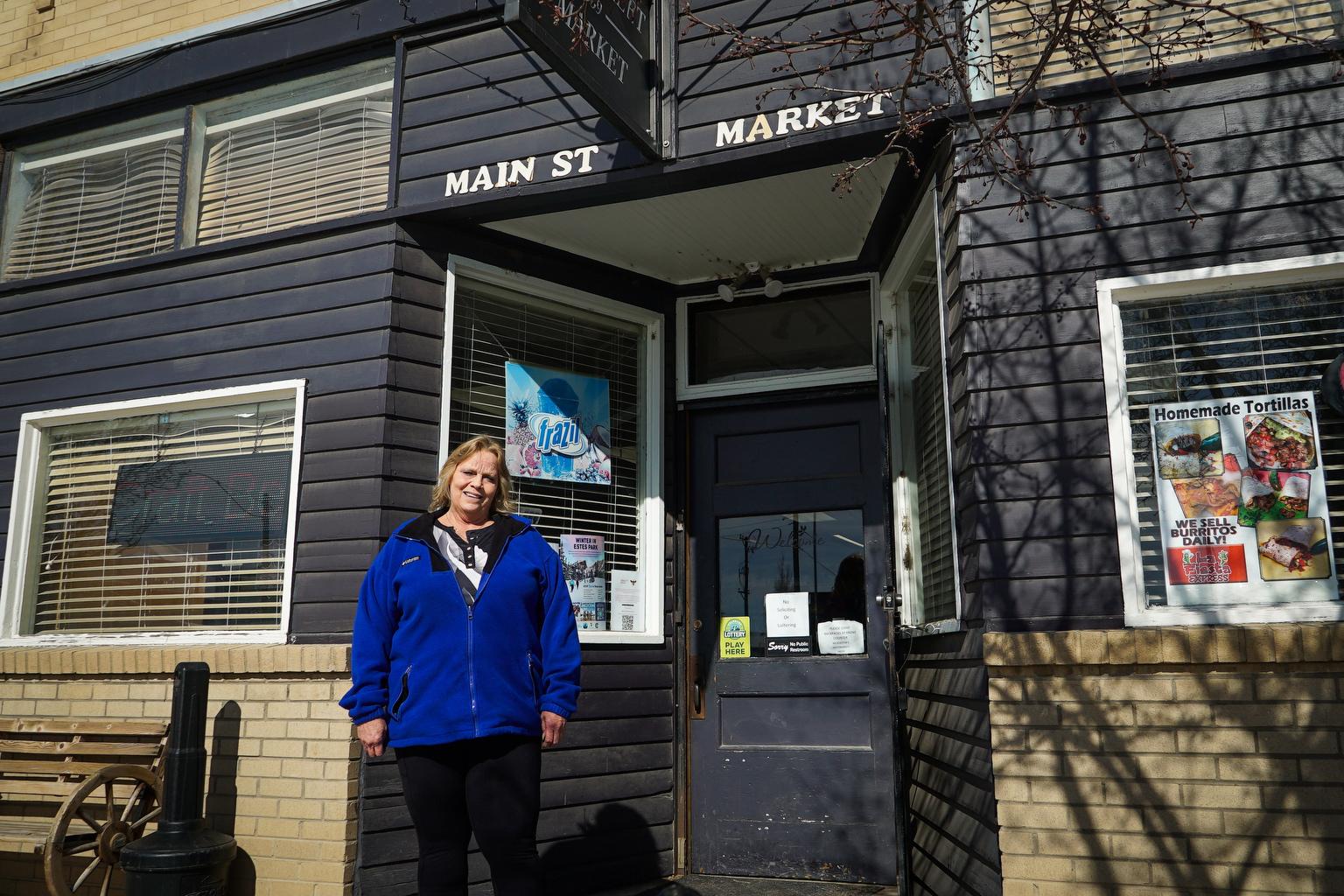
As a new month dawns during the COVID-19 pandemic, a large chunk of the more than 75,000 newly unemployed Coloradans must figure out how to pay rent or mortgages without an income.
While the federal CARES Act — the stimulus bill that was signed into law Friday — does provide eviction protection for some federally funded housing, the majority of people in the country are still on the hook for housing payments even as the economy shuts down. Some states, like New York, have suspended mortgage payments, and 27 states plus Washington DC have put moratoriums on evictions. In Colorado, Gov. Jared Polis has held off on any statewide order related to housing, leaving the decision to local governments and courts. He has asked for a pause on evictions enforcement.
While no local governments have frozen rent, courts in Denver, Mesa, Weld and Boulder counties have paused evictions. Last week, state Attorney General Phil Weiser encouraged other courts to follow suit on evictions.
"I urge all Colorado courts to join in recognizing the urgent need to pause all eviction orders during this emergency,” he said in a statement. “Nobody should be without their home as we grapple with this crisis."
A group of activists from metro Denver, including several public officials, released a petition this week urging a statewide freeze of all housing payments, utility bills and evictions. Instead of a freeze, both the state and local governments have been pointing tenants towards existing state-run and non-profit housing programs.
The Colorado Apartment Association, a trade association for multi-family owners, developers and management companies, released a guide to its members last week, recommending that landlords be more flexible during the pandemic. The guide advises landlords to create payment plans for tenants that can’t make rent, waive late fees and suspend evictions and rent increases.
CPR News spoke with landlords and tenants on the eve of April 1 about how they’re feeling and their plans for rent:
Debbie Dzruris, 57, Loveland
Dzuris is confident she’ll have the money for rent this month, but she’s increasingly getting anxious about next month.
She works at Home Depot in Loveland as a customer service representative. Before Colorado put any social distancing measures in place, she was already cautious because her husband has a heart condition that causes him to be immunocompromised. She regularly wiped down surfaces.
“The last flu sent my husband to the hospital overnight so I wasn’t willing to just let this be another situation that I brought something home to him,” she said.
Dzuris stopped working Saturday. She’s taking the 40 hours of paid time off that Home Depot provided for people who are afraid of catching COVID-19. Her husband works for a small cabinet company. A few weeks ago, he fell ill with what he thought was seasonal allergies. As a precaution, his job told him to stay home and to return to work when he gets clearance from his doctor. He couldn’t get a doctor’s note right away because doctors are trying to limit how many people they see because of COVID-19. He ended up not getting a COVID-19 test but did get a screening so he could go back to work a few days later. He wasn’t paid for that time off.
For next month, Dzuris has big decisions to make.
“I have to decide whether it’s safe for me to go back, and if it’s not, I can’t go back because of my husband’s health,” she said. “And then we’re just relying on my husband’s income and if he gets sick, we’re screwed. We’re at the whim of this virus.”
Dzuris pays $1,350 per month in rent. Her job pays her $13.50 an hour and she averages about 30 hours a week. Her husband is full-time and makes $17 an hour.
“Every single penny we have is counted for,” she said. “It’s either rent, car payments, insurance, electricity, and food. It’s always down to the last penny and we’re good at doing it but just the littlest thing can dip the scale and then you’re digging yourself out for months.”
Her son is also coming back to live with her because he was a server at a restaurant and is no longer making money.
She said that she will do everything she can to make next month’s rent, including selling her things if she has to. Still, she said she would rather deal with that stress than the stress of potentially infecting her husband.
“In order to [work], that might be a factor in my husband’s or anyone’s death,” she said. “It became so stressful I couldn’t sleep and I was losing my hair. I would put my hands to my head and the hair would literally come out my fingers.”
Jennifer Richardson, 45, Loveland
Like Dzurif, Richardson will be OK for now but next month is uncertain. Her husband, a self-employed house painter, is the primary breadwinner.
“We’re advertising every day and nobody is giving him a call,” she said.
For supplemental income, she works at a Walmart. She used to give people samples but now her primary job is to sanitize the entire store. She makes about $300 every two weeks.
Her husband been in California for the past month for work but he doesn’t have anything lined up when he returns in a few days.
Richardson lives in a mobile home in Loveland with her husband and four children. Her son, Gabe, is also a painter and is out of work. Her teenage daughter, Gloria, has type 1 diabetes, a potential risk factor for COVID-19. On top of rent, Richardson is concerned about how they are going to afford her daughter’s medicine.
“I’m very nervous for my daughter because I don’t know how it will affect her if she gets sick,” she said.
During hard times, she admits she’s been late with rent but she always pays even if it requires late fees.
“When [my husband] calls us, he sounds like he’s having a nervous breakdown,” he said. “Since I’ve known him for 28 years, he’s always been responsible. He wants to support his family but he’s not going to be able to.”
He videochats them every night and as a family, they pray together.
Bree Riehl-Pedelty, 31, Boulder
Riehl-Pedelty started a job at a coffee shop in Boulder earlier this month at Beleza Coffee Bar. A week after she started, Gov. Jared Polis banned on-site dining and she was out of work. The owners are now the ones working shifts but they tip out their staff. Riehl-Pedelty is too new to qualify for that. She only had about two days of training under her belt.

She’s also hesitant to get a new job at a grocery store because her husband, who works for a local chai company, is immunocompromised.
“Money is so tight for us as is, so I think there will come a day I risk bringing COVID-19 home to be able to pay rent,” she said.
Her husband now works a bit from home but everyone’s hours were cut. They equally share the bills.
“It’s nice to have something but it’s not much more than nothing,” she said.
She said she’s in shock at her financial situation. One day, she was fine and in an instant, she wasn’t.
“My husband and I now find ourselves deciding between food and rent and the choice is tough,” she said. “It’s a daily source of stress.”
To take her mind off of her financial struggles, she takes her dog to a local dog park several times a day.
“Just seeing her happy turns down the stress a little bit,” she said.
She bought a watercolor set a few years ago, and she’s finally using it. She’s also teaching herself how to play the ukulele.
Austin Condra, 26, Englewood
Originally from Michigan, Condra, an engineer, has lived in Colorado for four years.
He bought a home three years ago and rented out the spare rooms to help with his mortgage. He eventually moved in with his girlfriend and now rents out his entire house in Englewood.
“I just knew that a lot of the people in the house were holiday workers, working in the food industry, multiple part-time jobs, things like that,” he said.
He understood that his tenants would be struggling so he offered 35 percent reduced rent for this month. To cover the mortgage, he’s using a savings account he has that was intended for repairs of the property. Because he has those extra funds, he acknowledged he’s better off than most. Condra said he’d be able to cover rent for four to six months before it would cause a significant strain on his funds.
“If a tree falls on the house, we may be in trouble,” he said. “Right now, my job looks pretty stable.”
He stops by his house to see his tenants about every other month and texts them often.
“I think it would be awesome if more people could step up and take a little cut to the bottom line,” he said. “If you’re in a good enough financial spot to afford a rental property and have that started, it’s likely you do have some sort of a buffer that you’re able to use at a time like this.”









